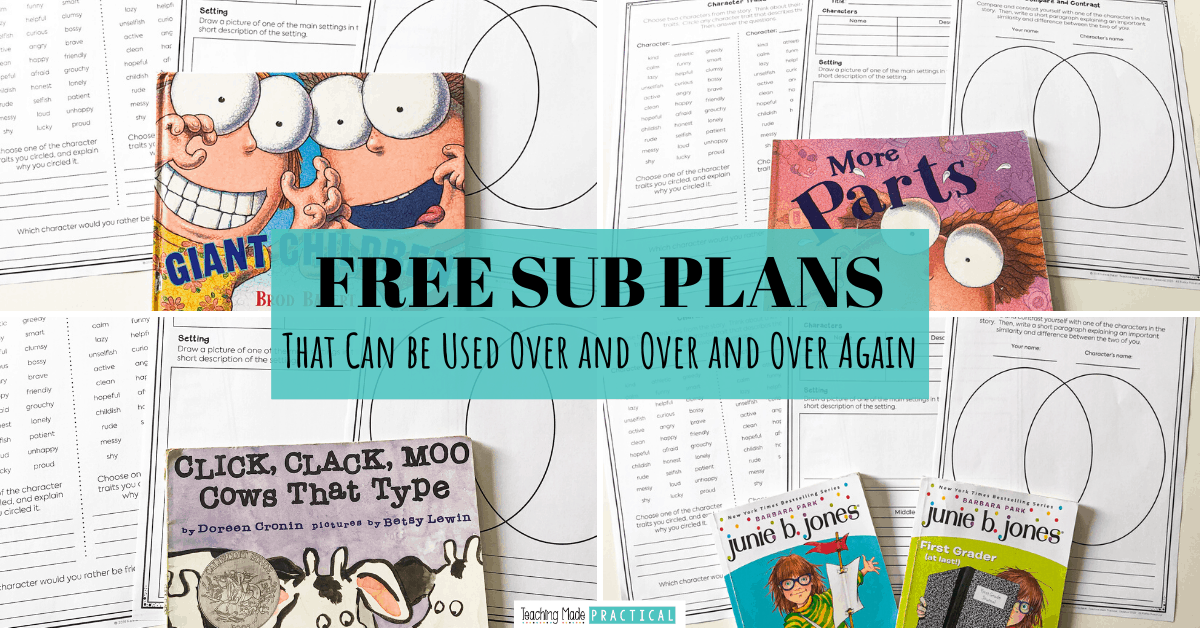
Words of a Advice for a New Teacher Written by Veteran Teacher Cindy Koopmans
This is Part 2 of a letter giving words of advice for a new teacher from a veteran.
The first 5 tips were:
- Love and enjoy ALL your students. Win their hearts and their minds will follow.
- Self-care is essential to your success.
- The word will still be there tomorrow.
- Set firm boundaries around your personal time.
- Teacher friends are fantastic, but the right mentor is nothing less than phenomenal.
Read more about these tips in Part 1.
The remaining 5 tips are below! First year teachers - words of advice from veteran teachers who have been through it all are more valuable than any college class. They know what teaching looks like in the real world.
#6 Choose to be professional over pleasing people.
This was a hard lesson for me to learn. As previously stated, I’m a people-pleaser. I want everyone to like me. That is simply impossible. You are going to disappoint or anger someone at some point. It is going to happen.
I’ve come to terms with the fact that I can’t be friends with everyone, but I can be friendly and I can be kind. Set firm boundaries. Set those boundaries up quickly and maintain them.
There are parents in this world who believe that the best thing they can do to guarantee their child’s good grades in class is to become good friends with their child’s teacher. That’s not fair.
My mission every year is to build relationships with my new students, and stay friendly with their parents, but I do not want to be friends with my students’ parents. Do you understand the subtle difference? This is tricky.
So here are my personal beliefs about boundaries, set in place by me for me as a result of falling into some pretty deep holes and having to dig myself out. I love this quote from Dr. Wayne Dyer, “You need to teach people how to treat you.”
- Take the lead in deciding when you will be available to parents. 24 / 7 availability is not good for me or for my students’ parents. You, and they, need to disconnect.
- I do provide my cell phone number to parents, but don’t feel pressured to respond to communications that are sent in the evenings or on weekends. You have to set the boundaries, because you’ll find out soon enough that some parents don’t understand courtesy.
- Social media boundaries are critical. Decline friend requests from parents until all their children are no longer at the school where you teach. Maintain a healthy social distance from parents, even if they are the sweetest people in the world.
- Exercise extreme discretion with what you post on social media. Remember, you are leaving a footprint that can be followed. Google yourself occasionally and see what pops up.
- What constitutes an emergency for you as the teacher and what constitutes an emergency to a parent are two very different things. Take time to consider if an after hours or weekend communication from a parent is really an emergency and manage the communication accordingly. Remember, it is okay to wait as long as 24 hours with a response.
- Exercise a lot of grace when it comes to late projects and assignments. “I understand,” and “just this once,” are words that are big deposits in parents’ and students’ emotional bank accounts. You’ll discover quickly who is attempting to take advantage of your generosity, at which time you can adjust your expectations accordingly.
- You are ultimately responsible for the well-being and safety of the children in your classroom. The legal term for this is in loco parentis. If you are not familiar with this legal term, take a minute and follow the link.
- Figure out who will be your go to person when you encounter tricky situations with parents. Your principal, assistant principal, dean, or guidance counselor are people you want on your side. Some parents are quick to go over a teacher’s head and complain to an administrator. You can get ahead of this by enlisting an administrator’s support so they aren’t surprised by a parent’s phone call.
If you want more to chew on, here’s a great article about Setting Boundaries at Work.

#7 Learn the art of cool-headed communication.
There are going to be things that happen in your classroom that will push your buttons and really make you angry.
One day, I watched a broken, jealous little girl, I’ll call her “Ann,” pull a chair out from under another little girl, “Liz.” I watched Ann smirk as Liz fell heavily to the floor with that, “What just happened here?” look on her face.
There’s more to this story. Many years later, Liz was killed in a horrendous car accident. Teaching will often break your heart.
As any person who has spent decades teaching school, I have many stories to share. By the end of this year, no doubt you’ll have stories too.
Children make a lot of mistakes because, well, they are children. They lie, they steal, they cheat. Why do they do these things? Many books have been written on these topics.
When you were in school, did you admire the teacher who lost her cool on a regular basis? Probably not.
I’m not saying that you should never raise your voice, just raise your voice sparingly. If you are always loud, loudness will lose its impact. Years ago I had the epiphany that when I got quieter instead of getting louder, children paid more attention.
As the teacher, you’ll want to create your own “worst case scenario” playbook. Decide what hills you are willing to die on and which ones to let go. Usually, these hills have been identified for you by your administration, but we all have our personal pet peeves too. Do pick your battles or you will lose your mind.
Stay calm. Be consistent. Let your “yes” be “yes” and your “no” be “no.”
A parent will send you a note about something that you thought was no big deal. You realize that your student may not have presented the situation in a way that was entirely truthful. As a result, the parent sees the event in a totally unreasonable way.
Take a step back, take time to think, and take lots of deep breaths. Create a personal action plan:
- If you are calm, make a phone call, or set up a face-to-face meeting, but first write down what you are going to say. Record a timeline of the actual events, not your perceptions of those events. Be ready to present the facts unemotionally. Although it is tempting to fire off a defensive email, these often do more damage than good.
- If you need to process, process with your mentor or one wise friend who is preferably not working with you at school. If you tell your story more than once, it is gossip. Although it feels good to get everyone on your side, this is not professional behavior.
- Whenever possible, wait 24 hours before you write a difficult email. Sleep on your thoughts and allow yourself time to cool off and think clearly. Ask your mentor or one wise friend to read what you’ve written. You’ll want that person to point out anything you’ve written that might strike the recipient as defensive or passive aggressive.
- Learn to be vanilla in your oral and written communications. Don't be apologetic or wishy-washy, but do be kind. Say nothing incendiary or remarkable and close with kindest regards, sincerely, or respectfully.
- Whether you are on the phone or in person, allow the other person to speak first or ask questions. Practice active listening. If you don’t know what to say, or how to respond, then say simply, “I’d like to think carefully about what you’ve said. Can we talk again tomorrow?” It is preferable to give no answer rather than a hasty answer.
- When you do make a mistake, forgive yourself. Think through what you could have done differently. The next time you encounter a similar situation, pledge to do things differently. This is how we learn and grow as people.
Remember, often we are dealing with parents who themselves did not have positive experiences in school. Some are carrying that heavy baggage into their relationship with you. At some point, you probably will be accused of being unfair, unreasonable, and maybe even a bad teacher. Don’t take it personally. It really isn’t you.
Miscommunication and misperceived behaviors happen all the time and can derail our relationships. Our stress level can be a factor that influences how we respond to difficult situations. Exercise grace and forgiveness even when it is not warranted. Do your best to let go of negative emotions. Those negative emotions will do more harm to you than they will the other person.
#8 Discipline your own students.
Your student is loud, rude, and totally out of line. You’ve given this child the teacher eye, a verbal redirection, and nothing is working. He or she is still blatantly noncompliant. You’re really annoyed, have a million things to accomplish and this is going nowhere.
You really would like to just get this child out of your sight.
But rather than sending the child out, consider drawing the child closer to you. Set up a desk or table and have the child come sit next to you. Remember, nothing is as important as the relationship you have with that child, including the work they are trying to avoid.
The new paradigm in many schools revolves around Restorative Practices. In a nutshell, Restorative Practices seek to promote inclusiveness, relationship-building, and problem-solving.
Implementing Restorative Practices requires training and support, so it may or may not be available to you this year. However, it is possible to implement the fundamentals of this philosophy in your classroom. The Two Minute Relationship Builder is a powerful tool you might consider using.
You need a whole toolbox of strategies and there is really no one size fits all.
So, please do not feel shame or a sense of failure if you do decide to send a child out. It happens to every teacher at some point. Just be sure to...
- Send the child out before you lose your temper, not because you’ve lost it.
- Agree with one or two colleagues the colleague will take in your student and you will do the same.
- Set a predetermined time limit of say, 10-15 minutes, at which time the child will return.
Some teachers give children a special colored folder as a signal to the receiving teacher, others ask the child to deliver a note, and I’ve even heard of sending the child to ask for a purple marker.
The idea here is to stay calm and not put on a show for the other children in the classroom. As much as you are able, stick to this precept: Public praise, private criticism. Redirecting a child doesn’t have to be dramatic, unless you escalate the situation and make it dramatic.
Finally, in all this talk of relationships, I want to emphasize that it is important to remain friendly with your students, to be their mentor, their coach, or their cheerleader, but not to be their friend. Here’s an article that lays out all the reasons Why You Should Never, Ever Be Friends With Students.
#9 Model values and virtue for your students.
I don’t know if you ever heard these words in your teacher education classes, but when I was attending classes our professors explained to us the importance of exhibiting behavior that is above reproach.
It really comes down to ethical integrity. “Who are you when no one is watching?”
In one school where I taught, two kindergarten teachers eating lunch in the teachers’ lounge spent time talking about their trip to a strip club. I’m not making this stuff up.
They weren’t invited to teach the following year, but I doubt it came down to that particular incident, because there were lots of other red flags.
It isn’t that they made the trip, because they did that on their own time, not on school time. It’s that they advertised that they had made the trip.
You see the difference. They didn’t understand how to keep private things private.
If you were here right now, we could have a lively conversation around this topic and we might even agree to disagree.
I’m really sorry to be the one to have to tell you this: You are being watched. You are being judged. It is part and parcel of the profession you have chosen. If this is an epiphany for you, my deepest apologies.
A few years back I had a colleague in fifth grade that chose to wear high heels, short skirts, and low cut shirts. Admittedly, she did look good in them. Sadly, her outfits were often remarked upon by unkind people. The funny thing was that by the end of the school year, what were the little girls in her class wearing? You guessed it...high heels and short skirts.
Be aware. People...grownups and children...are watching and listening. Consider carefully what image you want to project.
Sometimes I recommend products using affiliate links. If you click through and buy, I may be compensated at no cost to you. Check out my disclosure policy here.
#10 "Hold on to your hat. Hold on to your hope. And wind the clock, because tomorrow is another day." - E.B. White
I’m honestly so sorry that this weird, challenging, crazy year has to be your first year in the teaching profession. Keep your eyes on the prize this year: Show up every day and love your students.
Teacher life is wonderful! You are going to love it.
But occasionally, no matter how well you are prepared, you will have a bad day. So much in teaching is out of your control.
When that happens, just shake the dust off and move forward. Grit and resilience are two of the most common attributes of a successful teacher.
Finally, try to relax and lean into this year. Your style won’t be like anyone else’s style because you are a unique person.
You are going to have a fantastic and memorable first year of teaching!
If you want more...
LouAnne Johnson wrote the book that became the movie, Dangerous Minds. She has authored many books including, Teaching Outside the Box and others that you can find by clicking here.
25 Things Successful Teachers Do Differently is a must read.
This link will knock your socks off: 15 Awesome Classroom Management Books. Two of my favorite authors are featured on this list: Harry Wong and Ron Clark.
Teach Like Your Hair's on Fire by Rafe Esquith is a light-hearted and inspirational book about one teacher’s very unique philosophy of teaching.
Check out these other back to school tips to help your first week of school run smoothly!

Never Stress Over Sub Plans Again!

Make copies, find a fiction book, and you'll be ready for any emergency that comes your way!

